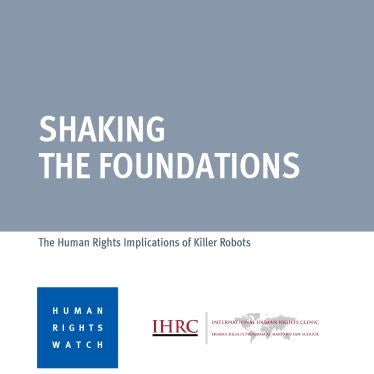On March 11, 2009 President Barack Obama signed legislation banning the export of any cluster munitions with a “dud rate” of greater than one percent. Only a tiny fraction of the US arsenal can meet that standard, so the ban is nearly comprehensive. The legislation also requires the receiving country to agree that cluster munitions “will not be used where civilians are known to be present.” This is now the law of the land – a huge victory for Human Rights Watch’s advocacy.
Senator Patrick J. Leahy of Vermont, chairman of the Appropriations Subcommittee on State and Foreign Operations and a close ally of Human Rights Watch, was the architect of this legislation. Senators Leahy and Dianne Feinstein of California, as well as Congressman James McGovern (D-MA) have also introduced the Cluster Munitions Civilian Protection Act (HR981; S416), which is designed to prohibit the US military from using cluster bombs that do not meet the same standard on failure rates.
Human Rights Watch provided the earliest and most thorough record of the damage to civilians caused by cluster munitions, including detailed studies in Serbia/Kosovo, Afghanistan, Iraq, and Lebanon. To help end the suffering caused by cluster bombs, Human Rights Watch co-founded the Cluster Munition Coalition, which includes 250 organizations in more than 70 countries.
The work in the United States is not done, of course. We’re still calling on President Obama to initiate a thorough review of clusters policy. Our goal remains the US signature of the historic Convention on Cluster Munitions, agreed in 2008, which 95 countries – including many close US allies – have already signed.






